
- Home
- Meet the ex-teacher trying to ‘normalise’ Oxford
Meet the ex-teacher trying to ‘normalise’ Oxford
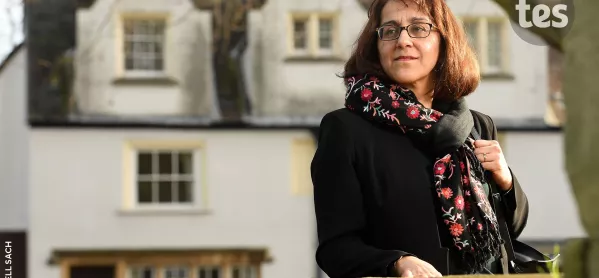
“Education, education, education. It wasn’t Tony Blair who said that, it was my dad,” Samina Khan laughs.
Khan is the director of undergraduate admissions at one of the most prestigious universities in the world, and, growing up, education was always prized and valued at home. She describes how her scientist father was passionately invested in his children’s schooling from an early age.
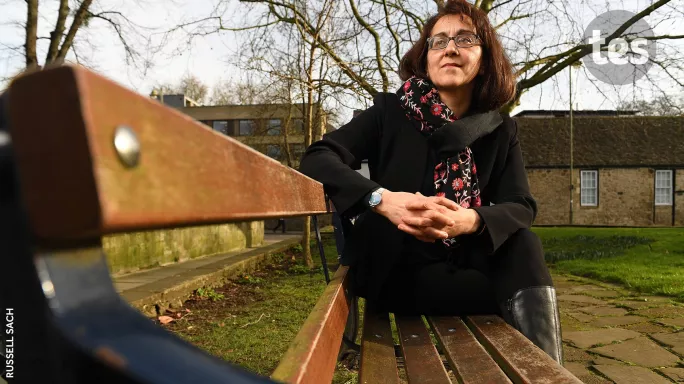
However, her background also helps her to understand the barriers faced by disadvantaged pupils when it comes to gaining entry into Oxford’s quads and gleaming spires.
Related: ‘How we break down the barriers to Oxbridge entry’
Feature: How to get disadvantaged pupils into Oxbridge
Admissions: How to put Oxbridge within your students’ grasp
Growing up in Leicester, while her parents prioritised learning - “coming from an Asian background, education was at the heart of everything we did” - she also had to surmount some limited aspirations at a school with a largely working-class intake.
Khan describes feeling slightly out of place as a pupil - while the city was and is multicultural, her school was in “a very white working-class area, so I was always the odd child out at school, always my brothers and myself who were people of colour”.
Breaking down barriers in education
And, by secondary school, when it came to advice for the future, “it wasn’t a school where they talked about Oxford or Cambridge - or even university, actually”.
Some of the careers visits that Khan had are “still very vivid in my memory”, she quips - they included outings to local textile factories or the dyeing works.
“That’s what they thought girls like us would go and do,” she says.
In fact, Khan was interested in science - she is a chemist - yet she and her father had to struggle for her to study chemistry at all. Her all-girls’ state school offered biology, but not physics and chemistry.
“My dad had to actually camp outside the headteacher’s office to say, ‘No, my daughter wants to study chemistry and physics.’”
The head relented, and offered an O level in combined science.
Khan points out the absurdity of having to fight to study a subject that she now holds a postdoctorate in. Nonetheless, these experiences have inspired her to challenge injustice in education throughout her career.
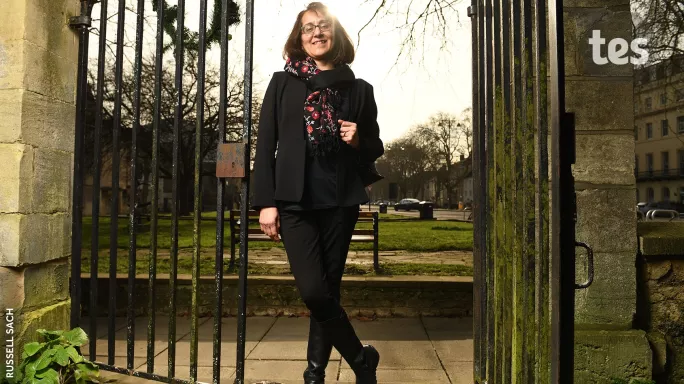
“There were always these sort of inequalities. It wasn’t really a fair playing field, from my own experience - and I think that’s sort of driven me a lot in terms of the work that I do,” she says.
Khan went on to study organic chemistry at King’s College, London, a subject she clearly loves. However, moving away from home for the first time was not without its difficulties.
“I was just completely sucked in by organic chemistry, which might sound bizarre for those who don’t appreciate it - but it’s about problem-solving, it’s almost like solving codes and puzzles.”
She was also aware of how it could be used to develop cancer treatments, later working in research. But the move from Leicester to London still came as something of a shock.
Widening access to Oxford
“It was the first time away from home, so the transition to the big city was large. There was nothing in those days in terms of support - you just either swam or you sank,” she recalls.
“It did take a while for me to fit in. Coming from quite a traditional Pakistani background, to then arrive in a place where, actually, alcohol was everywhere, and you didn’t always see yourself in the people around you, in their customs and their cultures.
“But luckily, you adapt - you change, you make friends and you make a success of it.”
Perhaps this experience is what makes Khan so keenly attuned to the challenges faced by Oxford applicants from disadvantaged backgrounds.
During her time as director of admissions and outreach, she has implemented a number of access programmes designed to “normalise” Oxford - a university that, with its traditions of formal halls, sub fusc dress codes and medieval architecture, can seem impossibly archaic.
And Khan understands that in order to help pupils feel like Oxford might be somewhere they could thrive, their community, school and family all need to be on board.
Projects she has been involved with include a scheme in Warrington with academy chain The Challenge Academy Trust, where school teachers and Oxford staff worked together to develop academic resources. Pupils can also use the programme Oxplore, an online platform for debate and ideas.
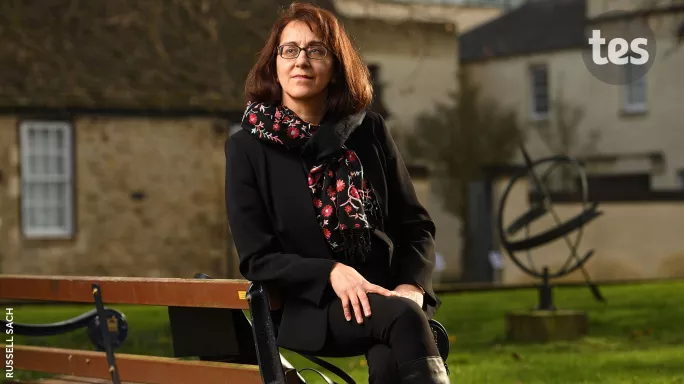
And the university runs residential summer schools for black teenagers and state-school applicants, to boost admissions from these groups. But Khan describes how pupils from underrepresented backgrounds have a “leaky pipeline” to Oxford, with talented applicants dropping out at every stage of the process.
She is conscious of the many challenges faced by disadvantaged pupils when it comes to applying to a high-tariff university, especially for those from ethnic minority backgrounds. As well as the inequalities in the education system, pupils’ families may have misconceptions about the value of different courses.
“I know from my own background, my parents wanted us all to be doctors, or lawyers or engineers,” she says.
“There is pressure on young people to go into those areas - and we’ve then got to say, ‘Actually, a degree from Oxford opens many doors - with a degree in classics or Arabic studies, you can go on to be a lawyer, you can be many, many other things.’”
My father wanted me to be a doctor
She says her father would have loved for her to become a doctor, with her degree in science seen by him as “second best, in a way”. Had she had free rein over her subject choices, she might have opted for politics.
“Finally, my younger brother is now a GP - he got his dream. But it was a very strong steer, and, actually, for us children, it really narrowed our vision of what the opportunities were; we didn’t think of other things, because we were told to go down this particular route.
“I know that’s still the case with young students from certain ethnic minority backgrounds. At home they don’t talk about anything else other than very limited degree courses.”
She says the admissions office’s statistics show that applicants from ethnic minority backgrounds tend to go for vocational courses, such as law and medicine - which are also the most competitive.
There are other cultural barriers, too - some parents worry about allowing their daughter to leave home when there is a local university nearby. Khan has held parents’ evenings for families to help “demystify” Oxford - “They had a cup of tea, had a samosa. It was for them to say, ‘Actually, yes, this is possible for my child as well.’”
For both applicants and their families, she says, it is about saying, “Oxford welcomes you, there are things you will recognise from your home and your school.”
When Khan first started in her post in 2012, there was no bespoke outreach for ethnic minority candidates. Now, university guides are available in home languages such as Urdu and Punjabi. The prospectus has also been designed with the “lone applicant” in mind - so that a pupil armed only with this and no other information could make a competitive application.
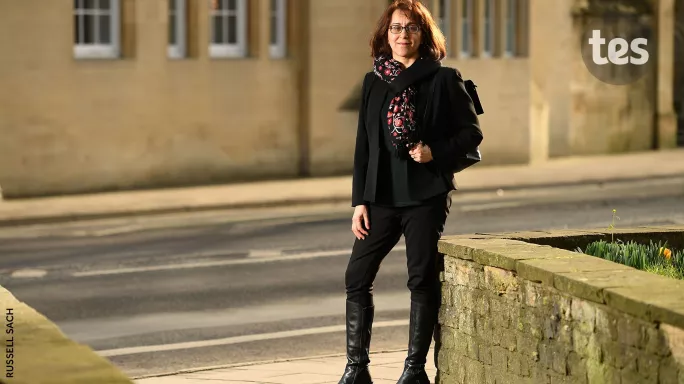
“If Oxford - through its face-to-face outreach or digital outreach - if we can be the sharp-elbowed parents of these students who don’t have that sort of support, that’s very much the role that we take. Can we empower them, can we inform them?” she says.
That said, there are still many barriers that, over the course of a pupil’s life, can stack up against them. Khan says the project in Warrington was an example of fostering the critical thinking and “soft skills” that can be squeezed out of the curriculum in a busy comprehensive.
Demystifying Oxford
Some of the best ambassadors for making Oxford more accessible are, of course, the current undergraduates themselves. Khan says students can show applicants that there are already people from their community or faith studying at Oxford. Knowing that halal or vegetarian food is on offer at a college can assuage the fears of those worried about the more esoteric aspects of the university.
Khan has even run a teachers’ residential, in which teachers experience the life of an Oxford undergraduate so they can then share this with their pupils.
Khan says she tells pupils that they have to find something “relatable” about the university, however unfamiliar it might appear.
“One of the places I was allowed to go as a child was the library, so the library was very familiar to me. Coming here to Oxford actually, you are tripping over libraries.”
She says that this, along with the central position of food at many functions and events - a further similarity with her Pakistani heritage - helped her to see Oxford as “normal”.
“When I talk to young people, I say, ‘You may look at the architecture and think, ‘That’s so alien to me,’ but find other things that are relatable to you.’”
Fairness in education
Khan’s interest in educational equality also stems from her background as a teacher in the state sector - she taught science in secondary schools, as well as in further education colleges, for nearly six years.
It was after working in research for around six years - she acquired a PhD in organic chemistry during this time, and jokes that her “skin was beginning to flake [from the chemicals]” - that she changed career. She had long been troubled by inequality of opportunity in schools, and asked herself “how can I best help the next generation?”
“I suppose at the heart of what I always believe in is education for everybody,” she says, “and what was driving me was fairness of education, fairness of access to education.”
Following her PGCE at Oxford, she taught only in the state sector, both at secondary level and in FE colleges. She is a staunch advocate of state education, saying her own schooling had helped her to leave what was “not necessarily poverty but, not exactly a household where there was lots of surplus money”.
When she taught in FE, she covered GNVQ courses and BTECs, encountering some truly inspirational students. One woman was returning to education in later life to retrain as a nurse, having escaped an abusive marriage. She says that in the case of these older students, she often felt she was learning as much from them as they were from her.
Khan would later work in qualifications policy during Michael Gove’s reforms of the exams system, and while she is largely supportive of the changes he made to A levels and GCSEs, she was also aware of the value of alternative qualifications for many learners. At the time, she felt reservations over how a new, highly academic curriculum might leave some students behind.
As a teacher in FE, Khan saw how “very bright, very sharp” students who did not benefit from the traditional style of teaching at A level could flourish when learning through vocational routes.
“We seem to go round that loop so many times,” she says, referring to the seesaw of education policy between a broader vocational curriculum and a narrow, academic one. Education policy, she says, has a tendency to “throw the baby out with the bathwater”.
Failings in vocational education
“We’ve just not got vocational education right in schools and FE, and I don’t know why. I think one of the things we trip over, again and again, is to try and create some sort of parity across the academic route and the vocational route,” says Khan.
“We’re obsessed by that, and we don’t seem to be able to let it go - if we did, we’d probably have more fit-for-purpose vocational routes.”
Her teaching career was a springboard to jobs in qualifications policy and development: she started out at the Qualifications and Curriculum Authority (QCA) before moving to Edexcel, where she oversaw the science content of the exam board’s GCSE and A-level specifications. She even developed the physics content of the beauty science BTEC - a “fantastic” experience.
Subsequently, she worked at the Qualifications and Curriculum Development Agency (QCDA) from 2007 to 2011, witnessing a cultural shift in the Department of Education as the levity of the Ed Balls era was succeeded by Gove’s focus on rigour.
When Gove came in, she says, “it was a really exciting time - the whole of the DfE just transformed overnight”.
She describes how walking into what was then known as the Department for Children, Schools and Families when Balls was in charge you would see cut-outs of cartoon characters known as the “munchkins” - so that when people entered, “you got a sense of creativity, maybe, a little bit of fun”.
With the arrival of the coalition government, the munchkins met their demise - “they were in a skip somewhere in London!”
However, Khan is reticent about her view of Gove - she says it was “a long time ago”. She feels he was right to implement his reforms, and that, in his focus on standards, and, notably, global measures of comparison such as Pisa (the Programme for International Student Assessment), he recognised that education was no longer a “local, national” concern.
Gove, she says, was the first person to question the “gold standard” of A levels - “I think that made a few people sit up.”
‘Soul-destroying’ GCSE resits
However, she did feel troubled at the time over pupils who might be left behind by the new, tougher exams. She herself had worked to develop functional skills qualifications, as well as the Foundation Learning Tier - targeted towards students who had had very disrupted educations, or who had severe learning difficulties.
“My concern was that certain students would fall by the wayside - I was thinking about what provision would be available for them,” Khan says.
“There was this notion that, ‘It doesn’t matter, because everybody can ultimately achieve GCSEs.’ I don’t necessarily believe in that. I think it can be a little soul-destroying to have to do something over and over again.”
While she works at an institution where academic rigour is the order of the day, it is clear that Khan cares deeply about ensuring that education is not designed to suit only one type of learner. Indeed, she has also embraced the different learning patterns of her own children - one son read politics and economics at Goldsmiths, while the other is currently pursuing a degree in fine art at Leeds University.
But she admits that, as director of admissions, it was tough to take a step back when they applied for their degree courses.
“I think in a way I had to stop myself becoming my dad as well,” she says. “They had to make their own minds up.” More to the point, her children did not see her as the admissions director, and only rolled their eyes at their mother’s interference.
“I had to let them explore, make their own mistakes and come to their own conclusions”.
And that, one suspects, is at the heart of Khan’s philosophy when it comes to education - that it should enable students to pursue the choices that suit them the best.
CV: Samina Khan
School: Mundella Girls’ School, Leicester; Wyggeston Queen Elizabeth I Sixth Form College
1982-1985: King’s College, London --BSc chemistry (Hons)
1985-1986: Loughborough University of Technology - MSc medicinal chemistry (distinction)
1986-1989: Loughborough University of Technology - PhD organic chemistry
1992-1993: St Hilda’s College, Oxford University - PGCE science
1993-1994: Winchmore Hill School, North London - science teacher and year tutor
1994-1996: Sutton Coldfield College, Birmingham - science lecturer and tutor
1996-1997: National Council for Vocational Qualifications, then Qualifications and Curriculum Development Authority technical officer
1997-2002: Edexcel Pearson - qualification leader, science
2005-2007: Federation of Awarding Bodies, director
2002-2007: Edexcel Pearson - qualification policy manager
2007-2011: Qualifications and Curriculum Development Agency
2011-2012: Tribal Education, business development director
2012-2014 University of Oxford, deputy director of undergraduate admissions and outreach
2014-present University of Oxford, director of undergraduate admissions and outreach
Register with Tes and you can read five free articles every month, plus you'll have access to our range of award-winning newsletters.
Keep reading for just £4.90 per month
You've reached your limit of free articles this month. Subscribe for £4.90 per month for three months and get:
- Unlimited access to all Tes magazine content
- Exclusive subscriber-only stories
- Award-winning email newsletters
You've reached your limit of free articles this month. Subscribe for £4.90 per month for three months and get:
- Unlimited access to all Tes magazine content
- Exclusive subscriber-only stories
- Award-winning email newsletters



